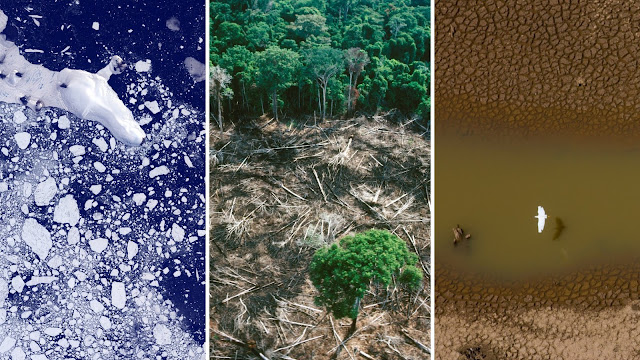Addressing Sustainable Development Goals (SDGs) within our capacity is a powerful way to contribute to the global sustainability agenda. Each of the 17 SDGs, established by the United Nations, represents a critical aspect of sustainable development, including poverty eradication, climate action, quality education, gender equality, and more.
While the magnitude of the SDGs may seem daunting, taking action at an individual level can create a ripple effect and contribute to larger positive change. Here are some ways individuals can address the SDGs within their capacity:
- Educate Yourself: Start by understanding the SDGs and their targets. Educate yourself on the specific goals that resonate with you and explore how they relate to your everyday life.
- Raise Awareness: Share information about the SDGs with your family, friends, and community. By raising awareness, you can inspire others to join the sustainable development movement and create a collective impact.
- Sustainable Lifestyle Choices: Make conscious choices in your daily life that align with sustainable practices. This could involve reducing waste, conserving energy and water, choosing sustainable products, adopting eco-friendly transportation options, and supporting local and ethical businesses.
- Volunteer and Advocate: Get involved with local organizations or initiatives that align with the SDGs. Volunteer your time, skills, or resources to support projects related to education, poverty alleviation, environmental conservation, or any other area you feel passionate about. Additionally, become an advocate for the SDGs by engaging in discussions, writing to policymakers, or supporting campaigns that drive positive change.
- Support Responsible Consumption: Consider the social and environmental impact of your purchasing decisions. Choose products and services that align with sustainable practices, support fair trade, or have transparent supply chains. By demanding sustainable options, you can influence companies and industries to prioritize responsible production.
- Lifelong Learning and Skill Development: Continuously develop your skills and knowledge in areas relevant to the SDGs. This could involve taking courses, attending workshops or seminars, or participating in online platforms that offer learning opportunities on sustainable development topics. By acquiring new skills, you can contribute more effectively to initiatives aligned with the SDGs.
- Engage in Dialogue and Collaboration: Join local or online communities dedicated to sustainable development. Engage in discussions, exchange ideas, and collaborate with like-minded individuals to amplify your impact. By working together, you can initiate projects, share best practices, and create a network of change-makers.
Remember, even small actions can have a significant cumulative effect. By addressing the SDGs within our capacity, we can collectively work towards a more sustainable and equitable future for all.
Standing at this make-or-break moment in time regarding climate change and global warming of our planet, we all need to be very aware of them and adjust our lifestyles to counteract them. Our responsible action today can save us and our future generations from this devastation. Being a global citizen, we all can contribute within our capacity to achieve SDGs. From the definition of Sustainable development, we can realize that the way we are changing our societies and technologies is not in coherence with our planet’s ecosystem. As our planet’s resources are limited, we need to find ways to make optimum use of them. The most important thing is our readiness and willingness to make the right changes.
- Travel less by private cars, and reduce road consumption by finding alternative solutions to the task that needs to be done.
- Consume less meat, especially beef because cows are one of the biggest producers of Carbon dioxide.
- Reduce the use of single-use plastic, for example using glass bottles rather than plastic bottles for soft drinks, using grocery bags rather than plastic bags.
- Buy long-lasting clothes and use them for years, we need to avoid fast fashion, as they are wasting 200 liters of freshwater per T-shirt.
- Donating more money to maintain the money flow from the rich to the poor. It will make society more balance.
- Contribute to education, research, and social works and increase awareness of climate change within our network.
- Recycle as much as we can, deploying an appropriate system around us. It just takes a little bit of thinking and effort and as a result, it can become part of our lifestyle.
- Consume less energy, even if we don’t have to pay the electric bills personally, we can try to switch off AC, fans, and lights whenever not necessary
- Plant trees as much as we can and use any unused lands for that purpose.
